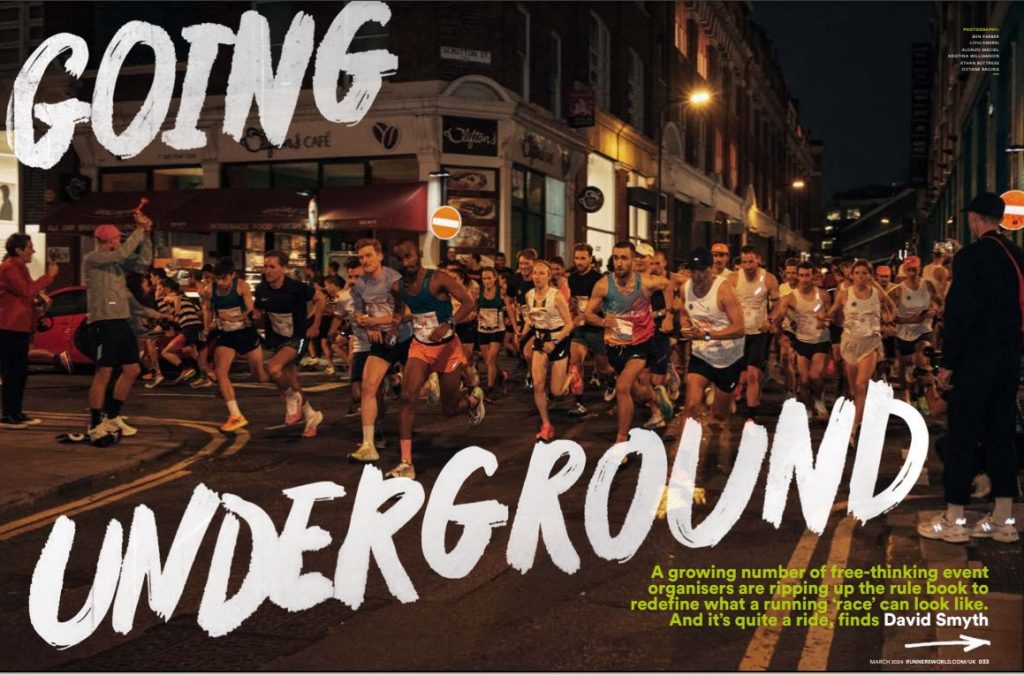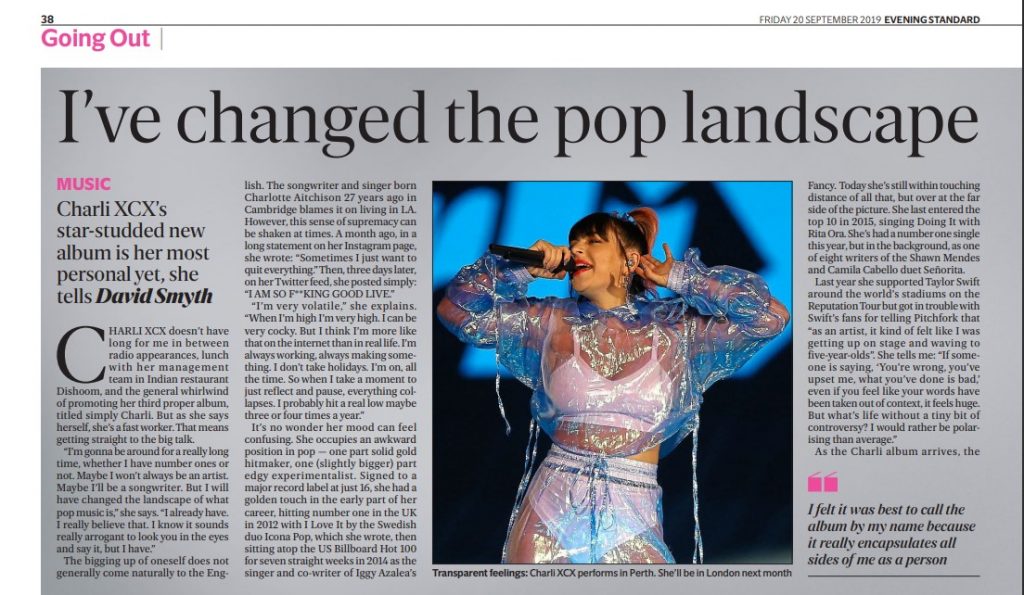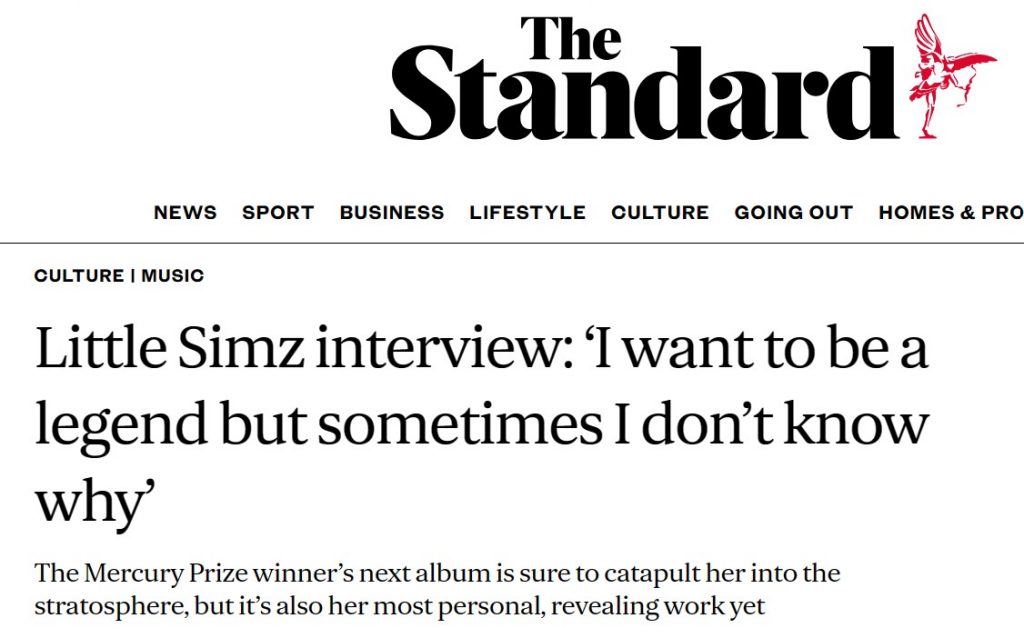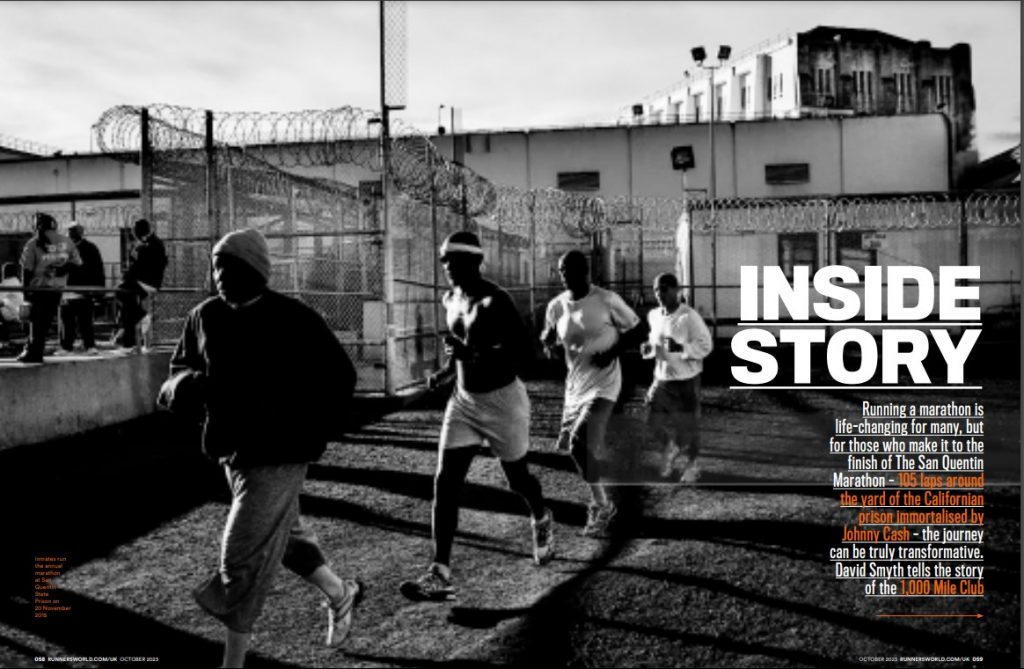Attached to a magnetic board in Anna Meredith’s studio are a series of pencil drawings that look like a seven-year-old’s designs for new Galactic Starcruisers. These are her songs, conceived as shapes that grow wider towards the right of the pages, divided by dark vertical lines and marked with words including “strong”, “full”, “softer”, “massive, joyful!” and “party synth”.
“A lot of them do have a rocket-like shape, yes. Because I like songs to build, basically,” explains the Scottish composer, 42. From these sketched beginnings she moves to the music notation software Sibelius and starts filling in gaps. “I’m listening to silence, trying to imagine sounds building up or down or transforming. At this point it’s about the pacing.”
Then she plays it back using Sibelius, which sounds “awful” because it’s meant for orchestral compositions and isn’t designed to make cool electronic sounds (unlike the dance production software Ableton, on which she’ll eventually finish the song). That suits her needs. “It plays back with these really honky synths but I like that because it’s a test of the raw materials. If it works in the rawest way, without smooth production, then I think it’ll be fine.”
It’s an odd way to make electronic music, but then Meredith has arrived at the genre from an unusual direction. Her nomination for the Mercury Prize later this month, for her second album, FIBS, looks like a minor honour given that she has previously composed orchestral works for both the First and Last Nights of the Proms, opened the Edinburgh International Festival and received an MBE for services to music.
“It definitely feels like a big deal, especially this year when you can’t take anything for granted,” she counters. “Maybe some of my other work is arguably more prestigious on paper, but this is a thing that I’ve made myself that nobody asked for, which I’ve had to sacrifice a lot to make, so I feel really invested in it. It’s definitely not a hobby, or a side project. It’s pretty much my main thing now.”
She says, as modesty expects, that she’s not expecting to win. FIBS is among the four lowest sellers of the 12 shortlisted albums, so the extra attention brought to its thorny synth mazes by the nomination will probably be considered reward enough. But she is sad that there won’t be a live ceremony this year. “I just thought it would be a fun boozy night hobnobbing with Stormzy and Kano, so that is a shame,” she says. “But given that I’m not writing the most mainstream music, the acknowledgement has been a lovely little lift in a year that’s been a tsunami of crap.”
We meet in her workroom in Somerset House Studios, along a basement corridor of around 100 experimental artists which used to house the rather less cool Inland Revenue. There’s a snooker room and a rifle range, and in normal times audience events are hosted here too. She’s been based there for about five years, working alone, walking over the river from her home in Southwark.
Her desk looks onto an brick wall just inches away, with the tiniest trickle of daylight edging downwards. It feels like an impossible space – huge double-height window yet twilight dim at midday, with surprisingly little in the way of musical instruments given that the grand flourishes of orchestras are conceived here. Her electronic sounds are equally maximalist, heavy and complex, and brought to life by a five-piece band consisting of her keyboards and clarinet, plus drums, electric guitar, cello and tuba.
She also sings, in a small soft voice that offers a surprising counterpoint to the weightiness of the instrumentation. “I don’t have a proper singer’s voice. I’m just a squeaky backing singer, but I like that contrast between the intensity of this wall of sound in the music and that human-ness of the singing,” she says. “I don’t want someone else to sing even though they might have a better voice. It would reduce the integrity. It’s my thing, so it’s going to be my voice.”
The fact that it’s her thing alone is the chief draw of this shift into making her own albums (her debut, Varmints, was released in 2016 and won the Scottish Album of the Year award). She has made soundtracks for the Bo Burnham film Eighth Grade and Paul Rudd’s Netflix comedy Living With Yourself, and been commissioned for orchestral works which range from a rethinking of Vivaldi’s Four Seasons for the Scottish Ensemble to music designed to be heard in shopping centre lifts during the Manchester International Festival – so for most of her career she’s been working to the requirements of others.
“I wanted a bit more control,” she says. “I wanted to generate stuff for me and the band, rather than feel like I’m just waiting around for other people to ask me to do things.”
Writing brand new classical pieces sounds like it isn’t always the most gratifying endeavour, either. “There’s not much appetite for contemporary classical music, so it’s a big investment for people to commission. And you might get funding for a new commission, but it’s very hard to get funding for repeat performances,” she explains. “A lot of new classical pieces might only be played once, maybe not recorded. You might spend months or years on something that’s gone in 15 minutes. It’s a huge emotional investment. I think that’s one of the things that got me to make this move into electronic music.”
Now, instead of sitting in the audience watching an orchestra play her music through her fingers, she’s on stage in a silver cape, having much more fun. Life as a teenage clarinettist in Edinburgh, or a junior fellow of the Royal College of Music, or even writing a “Concerto for Beatboxer and Orchestra” in 2010, doesn’t quite compare.
“I don’t think I’m turning my back on anything. Writing a huge orchestral piece with no electronics for the Proms in 2018 was about as mainstream classical as it gets. But I’m enjoying picking up new stuff,” she says. “The shows have been really fun to do, and I feel like it is growing. I want to do huge gigs, be in bigger rooms, be more theatrical. I see it as keeping everything, but broadening out.”
And with that it’s time to say goodbye, and draw another song.
FIBS is out now on Moshi Moshi. The winner of the 2020 Hyundai Mercury Prize is announced on Sep 24.











